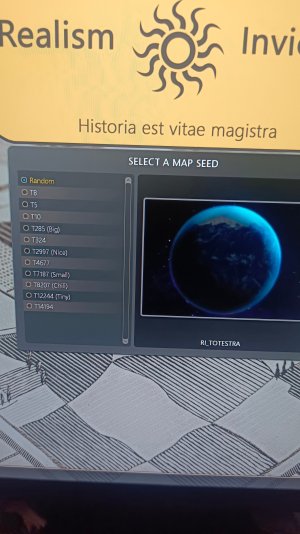I would like to present an article on inequality in ancient times, maybe it will help to develop this modification.
The collapse of ancient powers is usually attributed to pestilence, invasions or pride. But it might also be worth looking at the economic reckoning and how power seized wealth from the many for the benefit of the few - and what happened when those differences became too deep, writes Peter FRANKOPAN
At the beginning of the first millennium, two great empires cast long shadows over the world. Rome, encompassing the Mediterranean like a bronze ring, stretched from the rainy hills of Britain to the sandy lands of Syria. In the East, meanwhile, the Han Dynasty ruled a vast expanse of rice fields and river valleys, coordinating taxation and administration from Changan (today's Xian). Geographically and culturally distant, these empires are often portrayed as twin pillars of early imperial statehood - sophisticated, resilient and, for a time, durable.
But great powers are not just about borders and battles. They are an architecture of resource exploitation, labor and loyalty. I read with great interest a fascinating study published in Nature Communications. Its authors are two historians whose work I hold in high regard - Guido Alfani and Walter Scheidel - supported by Cambridge PhD student Michele Bolla. The article compares income inequality in the Roman Empire and the Chinese Empire under the Han Dynasty. The study revealed that beneath the majestic facades of Roman marble and Chinese palaces were structures of staggering economic inequality, the consequences of which are still being felt.
The authors posed two seemingly simple questions: how different were these two ancient superpowers in terms of inequality of wealth distribution, and why does it matter?
The conclusions are surprising. Contrary to the assumption that the early imperial states operated similarly in economic terms, during the first and second centuries - roughly the heyday of the two superpowers - the Han Empire was much more unequal than the Roman Empire. The differences were not only in the distribution of wealth among the elite, but also in the structure and intent of the system of government itself.
To determine this, the authors went beyond traditional “social tables” (which divide society into groups according to wealth and status) and took a more nuanced approach. They took into account not only inequalities within regions (e.g., rich elites versus poor farmers in Gaul or Gansu), but also between them. This approach led to an extremely important conclusion: inequality is not just about the distribution of wealth within a single city or province, but also about the way imperial systems accumulate privileges, or their deficiencies, over vast geographic areas.
The Roman state relied heavily on cooperation with local elites. Officials and the mighty governed cities and collected taxes, and in return enjoyed high status and relative autonomy. This created a model of dispersed power: resources went to the capital, of course, but the Roman system redistributed much of it to military spending, infrastructure and pragmatic support for the provinces. It was an empire based on accommodation.
The Han Dynasty operated differently. The emperors, deeply distrustful of regional power centers and the concept of autonomy, forced wealthy families to settle in the central province of Sila. The bureaucratic apparatus was extensive and centralized, with officials building their position directly through the court. While this created a strong administrative core, it also resulted in an exodus of talent and wealth from the province. Public spending was concentrated near the capital; fewer soldiers were deployed in border areas (and thus required less tax money).
The result? Much greater social divisions. In Sili, per capita income exceeded three times the subsistence level, which meant that the province was much richer than others. The authors of the work in question introduced the so-called inequality extraction coefficient, which shows how much of the possible surplus is actually captured by the elite. For the Han Empire, this coefficient reached 80 percent, which was significantly higher than in Rome, where it was 69 percent.
The Aztec Empire, which served as a benchmark, achieved an even more extreme result: 89 percent. This was dictated by long-term efforts at territorial expansion, military conquest and subjugation of the peoples living in the Valley of Mexico: there is no more effective way to achieve these goals than to seize local resources and wealth
Why should we care about all this?
First of all, because inequality is not just a moral or economic problem. As the authors argue, it's also a political issue: high levels of extraction correlate with the fragility of the system.
Just as some Aztec leaders saw the arrival of the Spaniards in the 1620s as an opportunity to free themselves from the overwhelming demands coming from the capital (Tenochtitlán), regions of the Han Empire plunged into rebellion when environmental disasters led to famine. The famous Red Eyebrow Uprising of the 1st century AD. - one of the largest peasant uprisings in history - did not come from nowhere. Such revolts show that overly centralized systems have a hard time weathering the storm.
Rome, though it can hardly be called egalitarian, was better prepared for uprisings. Military redistribution strengthened loyalty on the borders, and the fact that regional elites had a stake in the system meant that they benefited from peace and had much to lose in the event of unrest. The center of the empire may have dominated, but its strength was in its muscles, not its brains. Durability came from the strength of those muscles, and fragility came from centralization.
The study brilliantly demonstrates that inequality is not a by-product of empire, but its central pillar. Empires are often described in terms of conquest or administration. Or should the focus rather be on how empires determine who eats, who pays and who serves?
The echoes of these problems in our time are disturbing. Just look at the economic map of the United Kingdom, where London and the southeast enjoy prosperity unmatched by the north of the country. Or at the United States, where debates about federal redistribution are reminiscent of past tensions between the center and the periphery. The notion of a “geography of discontent” - often used to describe the political effects of economic divergence - could just as well apply to the Han Empire as to modern England.
There are also deeper lessons to be learned from the study. Inequality is often presented as a static condition, a point on a graph. Meanwhile, it is a dynamic, systemic and historical phenomenon. It reflects decisions - conscious or not - about the structure of societies. And as with the Han and Roman empires, modern states must reckon with the political consequences of their wealth distribution choices.
History is not a distant mirror, but a lens through which we look at the present to better understand the forces shaping our world.
The fall of ancient powers is usually attributed to pestilence, invasions or pride. But it might also be worth looking at the economic reckoning and how power seized wealth from the many for the benefit of the few - and what happened when those differences became too deep.
Today we live in an era of growing inequality, recurring questions about the legitimacy of the state and growing discontent.
Reading this study is not only an opportunity to learn about two ancient worlds. It's also a reminder that the fate of empires - both past and present - can depend not only on military strength or administrative efficiency, but also on how rulers distribute the burdens and benefits of power.
All of this is extremely interesting from the perspective of my work as well, both because I analyze similar structures and because I spend most of my time studying their resilience and assessing their vulnerability - present and future.
It's hard to find a better starting point than a careful look into the past.
Peter Frankopan


 In all seriousness though, I always treated RI as more of an RPG experience - you're role-playing a civilization. Therefore, I always put flavour first and foremost. While I like a bit of challenge, I never play to be challenged.
In all seriousness though, I always treated RI as more of an RPG experience - you're role-playing a civilization. Therefore, I always put flavour first and foremost. While I like a bit of challenge, I never play to be challenged.

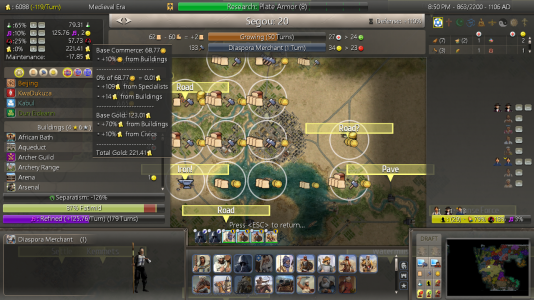
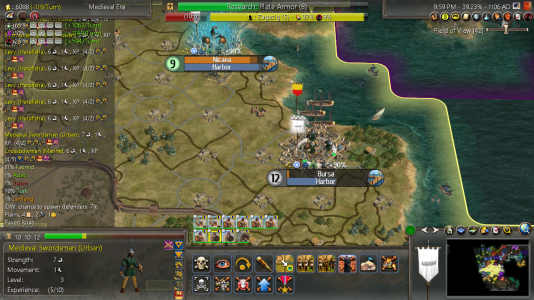
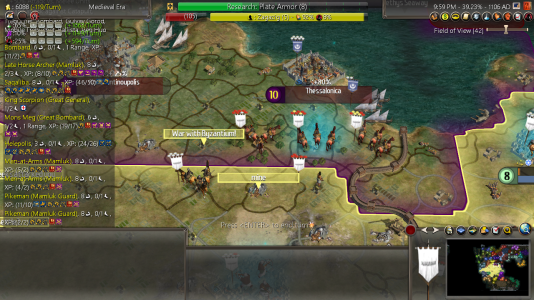
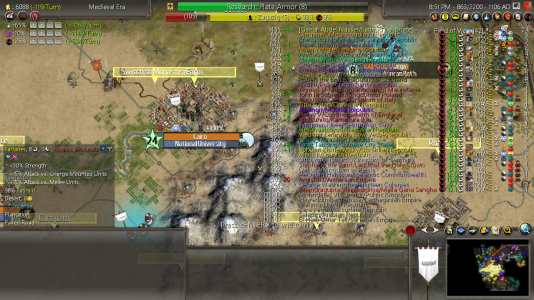
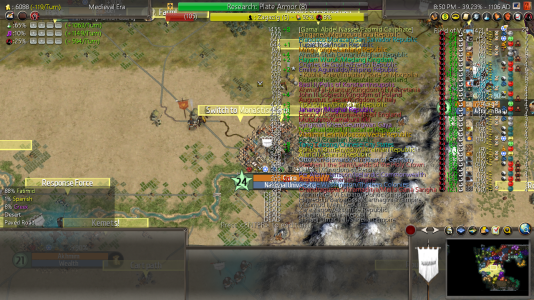

 ? I think 1 :happiness: would be enough because it's very low cost (as it should be)
? I think 1 :happiness: would be enough because it's very low cost (as it should be)
